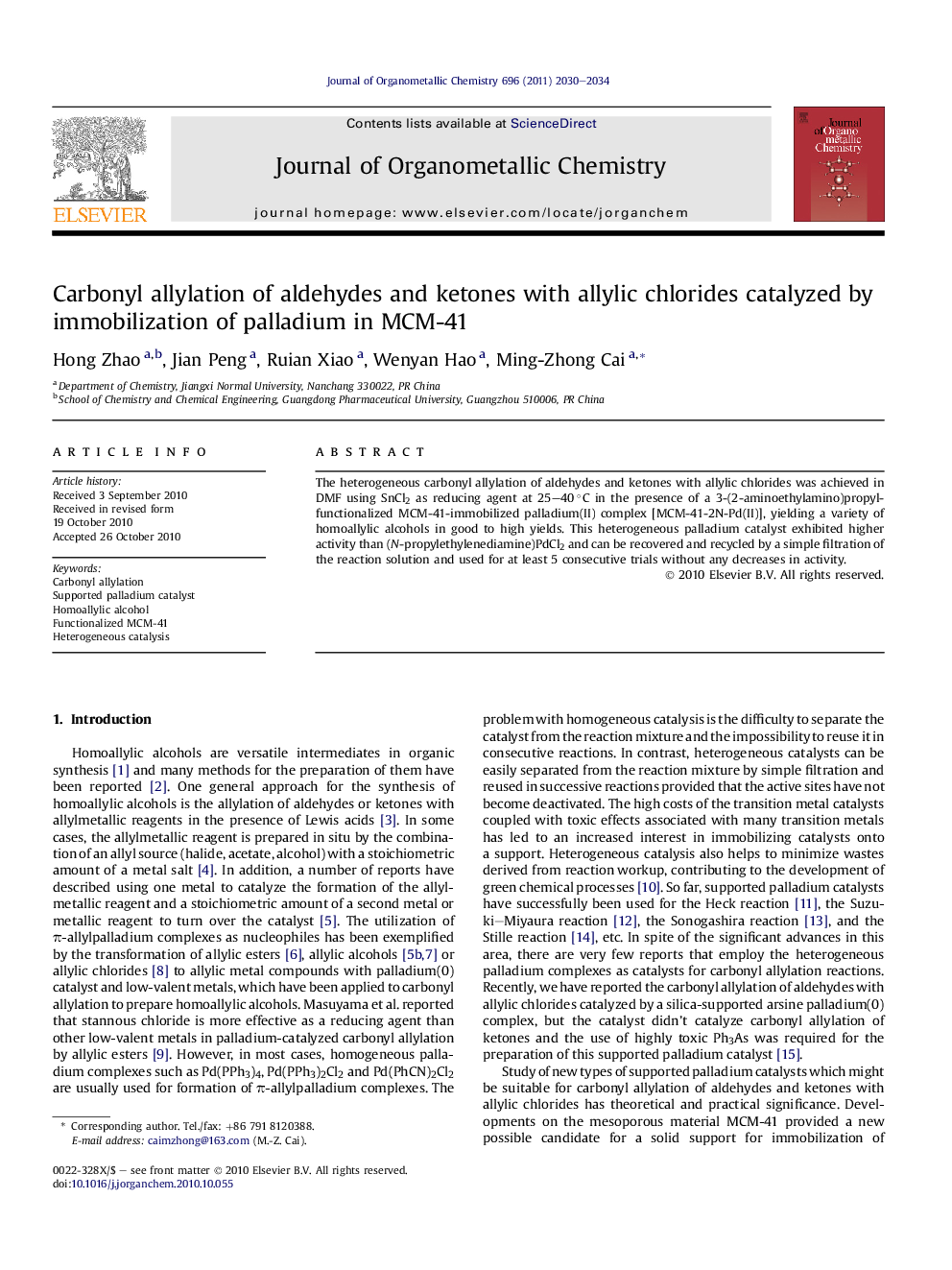| کد مقاله | کد نشریه | سال انتشار | مقاله انگلیسی | نسخه تمام متن |
|---|---|---|---|---|
| 1326628 | 977439 | 2011 | 5 صفحه PDF | دانلود رایگان |

The heterogeneous carbonyl allylation of aldehydes and ketones with allylic chlorides was achieved in DMF using SnCl2 as reducing agent at 25–40 °C in the presence of a 3-(2-aminoethylamino)propyl-functionalized MCM-41-immobilized palladium(II) complex [MCM-41-2N-Pd(II)], yielding a variety of homoallylic alcohols in good to high yields. This heterogeneous palladium catalyst exhibited higher activity than (N-propylethylenediamine)PdCl2 and can be recovered and recycled by a simple filtration of the reaction solution and used for at least 5 consecutive trials without any decreases in activity.
The heterogeneous carbonyl allylation of aldehydes and ketones with allylic chlorides was achieved in DMF using SnCl2 as reducing agent at 25–40 °C in the presence of a 3-(2-aminoethylamino)propyl-functionalized MCM-41-immobilized palladium(II) complex [MCM-41-2N-Pd(II)], yielding a variety of homoallylic alcohols in good to high yields.Figure optionsDownload as PowerPoint slideHighlights
► MCM-41-immobilized palladium complex was firstly investigated in the allylation of aldehydes and ketones with allylic chlorides.
► This heterogeneous palladium catalyst exhibited high catalytic activity for the allylation of both aldehydes and ketones with allylic chlorides.
► This catalyst can be conveniently prepared from commercially available and cheap reagents and reused for many times.
► The heterogeneous carbonyl allylation provides a practical procedure for the synthesis of a variety of homoallylic alcohols.
Journal: Journal of Organometallic Chemistry - Volume 696, Issue 10, 15 May 2011, Pages 2030–2034